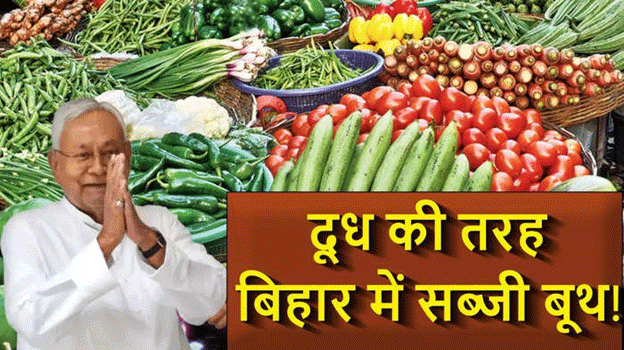The state of Bihar is rolling out a transformative plan to synchronize vegetable farming and sales through the creation of large-scale vegetable production clusters. Aimed at boosting both farmer profits and consumer access to affordable vegetables, this initiative under the Bihar State Vegetable Processing and Marketing Plan is set to change the agricultural landscape. By forming production groups near densely populated areas, the government hopes to address key supply chain inefficiencies while ensuring a fresh supply of vegetables across the state.
Addressing Supply Chain Gaps
Currently, farmers in Bihar face significant challenges in getting their produce to market, often leading to post-harvest losses and price fluctuations. The new cluster-based production model focuses on addressing these issues by situating vegetable farms closer to consumer centers. According to Dr. Prem Kumar, Bihar’s Minister of Cooperatives, Environment, Forests, and Climate Change, the initiative is intended to improve the coordination between farmers, wholesalers, and retailers. This, in turn, helps regulate prices and ensures that farmers receive fair compensation, even in times of surplus.
In the first phase, clusters will be established in 300 blocks across 20 districts. These blocks will include key agricultural areas such as Patna, Vaishali, Samastipur, and Muzaffarpur, which are known for their significant vegetable output. For each cluster, the government has proposed an investment of ₹11.7 million to build infrastructure, such as storage facilities and vegetable markets. This will enable farmers to store their produce, reducing spoilage and improving shelf life, which is a critical issue in India’s perishable vegetable sector.
Impact on Farmers and Buyers
One of the key features of this initiative is to set up contracts between farmers and wholesale markets, ensuring price stability and removing middlemen who often take a large cut of profits. Dr. Prem Kumar explained that government officials will monitor daily market prices to keep them fair for both farmers and consumers. In addition, by improving storage and distribution networks, the plan also aims to prevent the usual market gluts that lead to a sharp drop in prices when supply exceeds demand.
For farmers, this means better profit margins and fewer market uncertainties. On the consumer side, the initiative ensures that vegetables will be available at affordable prices, even in periods of high demand. It’s a system that creates a win-win scenario for everyone involved in the vegetable supply chain.
Pushing for Organic Farming
Beyond increasing efficiency, Bihar’s government is also focusing on organic farming as part of this initiative. Organic vegetables are becoming increasingly popular in India, particularly in urban areas where health-conscious consumers are willing to pay a premium. To tap into this growing market, the state plans to establish separate organic vegetable stalls in major cities such as Patna, with a special focus on the sale of organic produce grown in the clusters.
By encouraging farmers to switch to organic methods, the government is positioning Bihar as a key player in the organic market, potentially increasing the state’s agricultural revenue. This is a strategic move, given the state’s current vegetable output of approximately 18 million tons per year, which accounts for about 9% of India’s total vegetable production.
Cooperative Societies to Lead the Way
A crucial element of this plan is the creation of Primary Vegetable Producer Cooperative Societies, which have already been established in 300 blocks across the state. With over 41,728 vegetable farmers already enrolled as members, the government aims to increase this number to 100,000. These societies will not only help farmers access better technology and practices but will also provide a platform for collective bargaining, further enhancing their ability to get fair prices for their produce.
The cooperative societies will play an essential role in managing the vegetable clusters and ensuring smooth operations. They will also focus on spreading best practices for sustainable and organic farming, offering farmers the tools they need to modernize their operations.
Bihar’s Vegetable Processing and Marketing Plan is a bold step toward improving the state’s agricultural productivity while addressing the needs of both farmers and consumers. By creating local production clusters, the government is reducing the time and cost of transporting vegetables, which in turn helps maintain freshness and stabilize prices. Moreover, the focus on organic farming and cooperative societies offers a sustainable path forward, ensuring that Bihar can compete in both national and global markets.
This initiative is a prime example of how targeted investments and modern agricultural practices can transform the food supply chain, benefiting everyone from the farmer to the end consumer.































